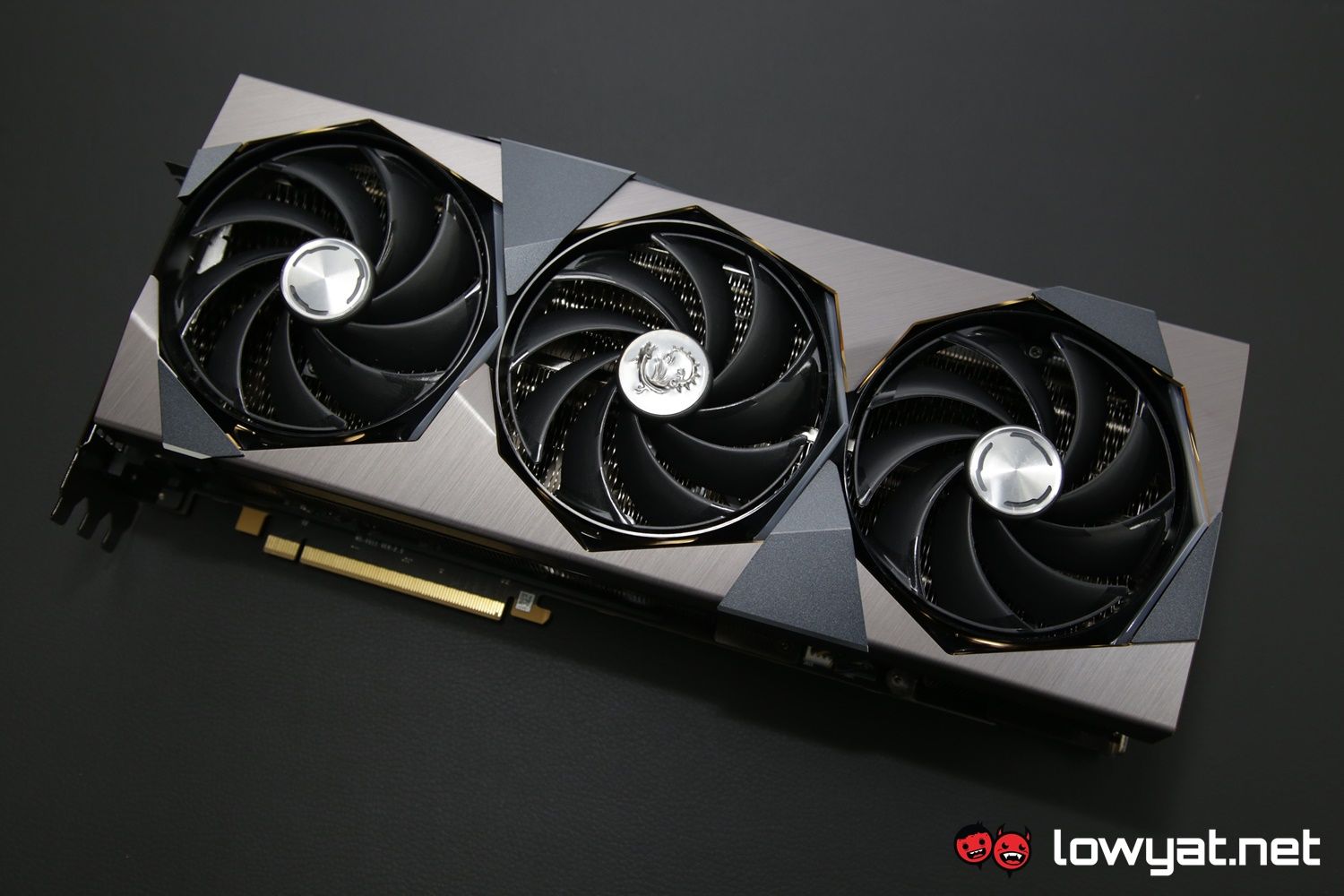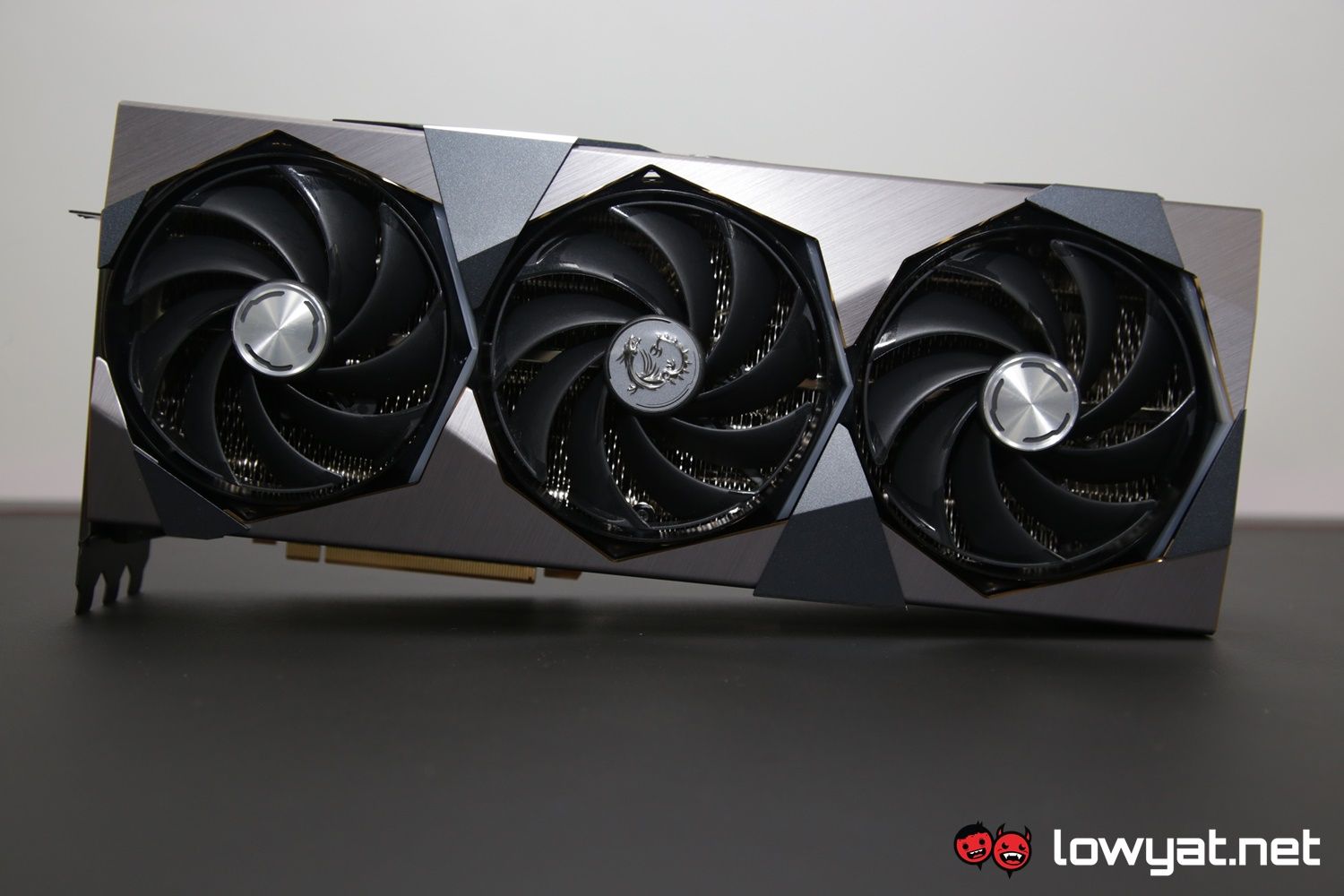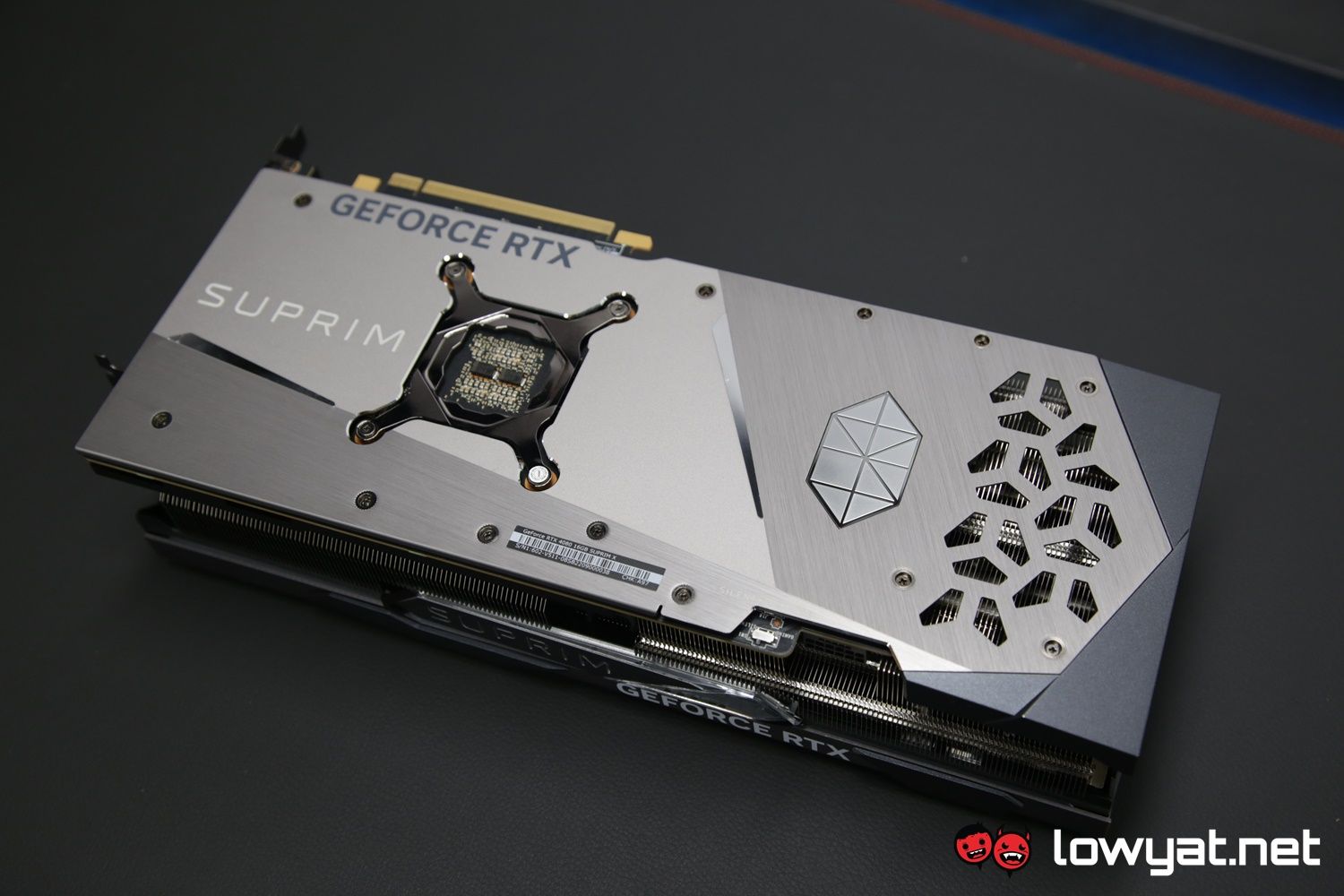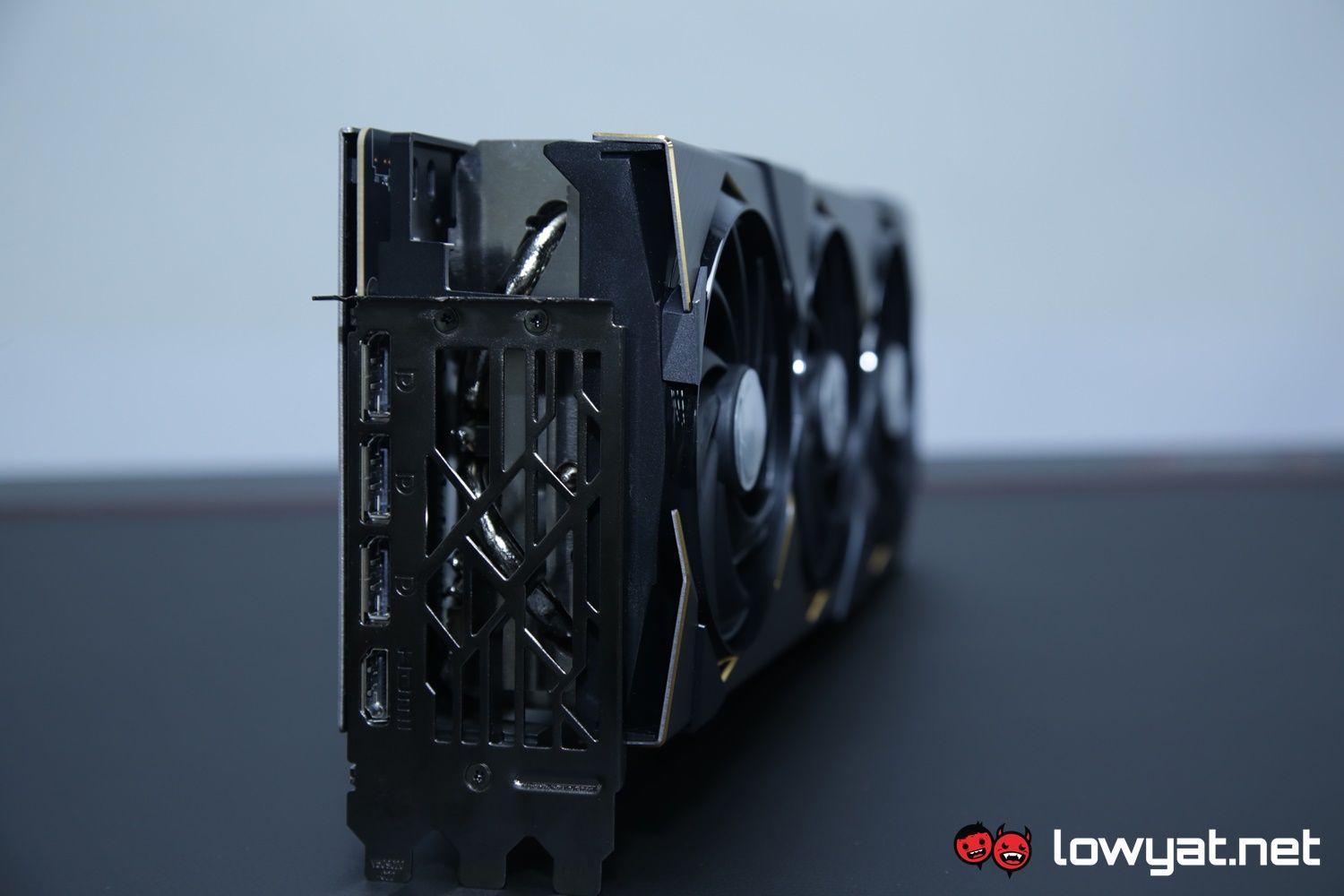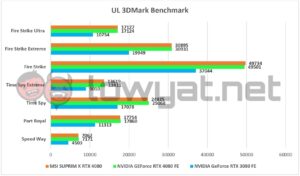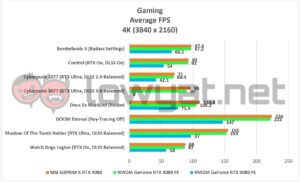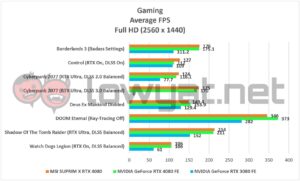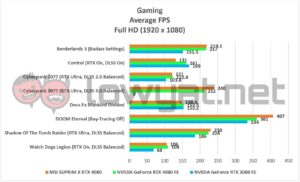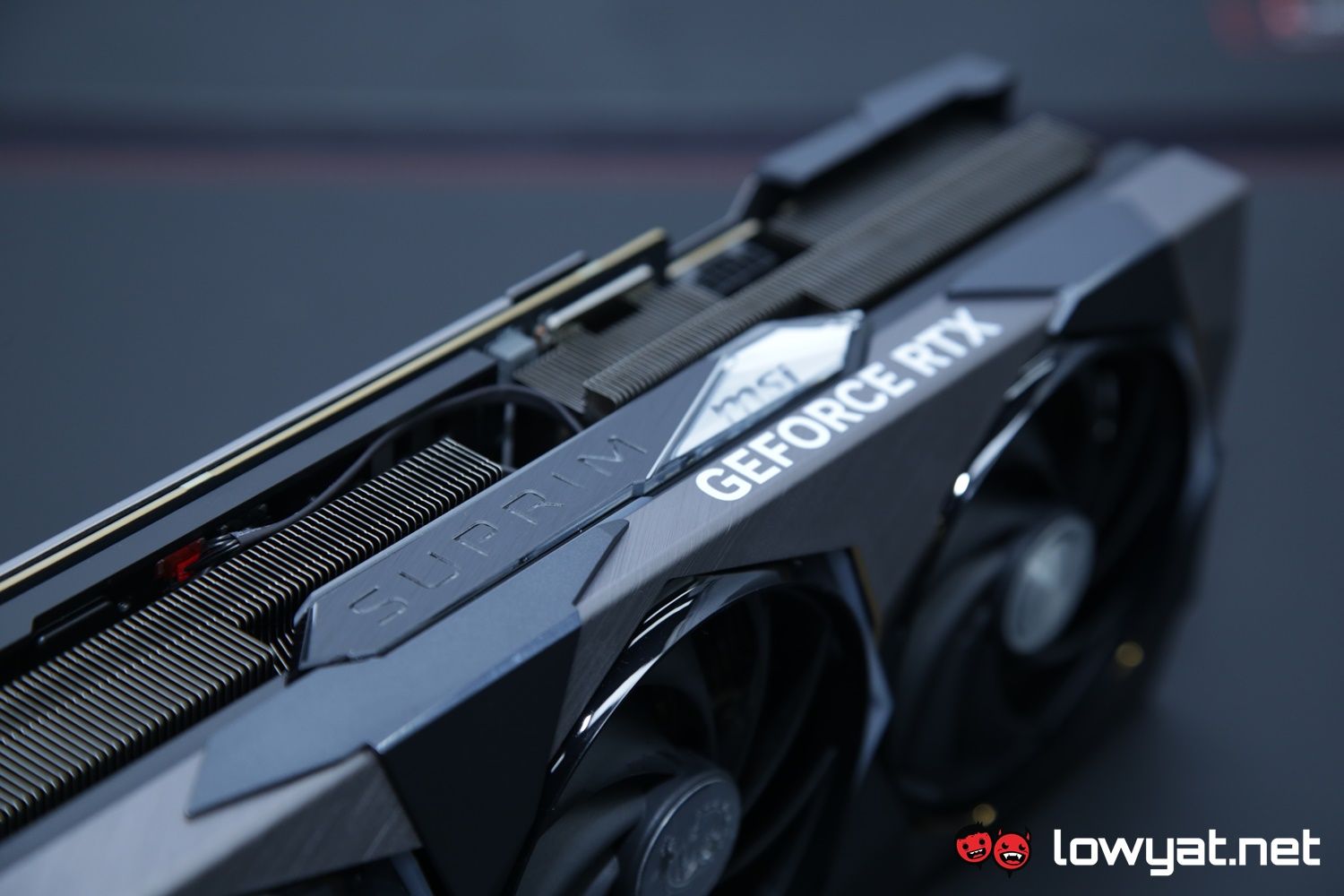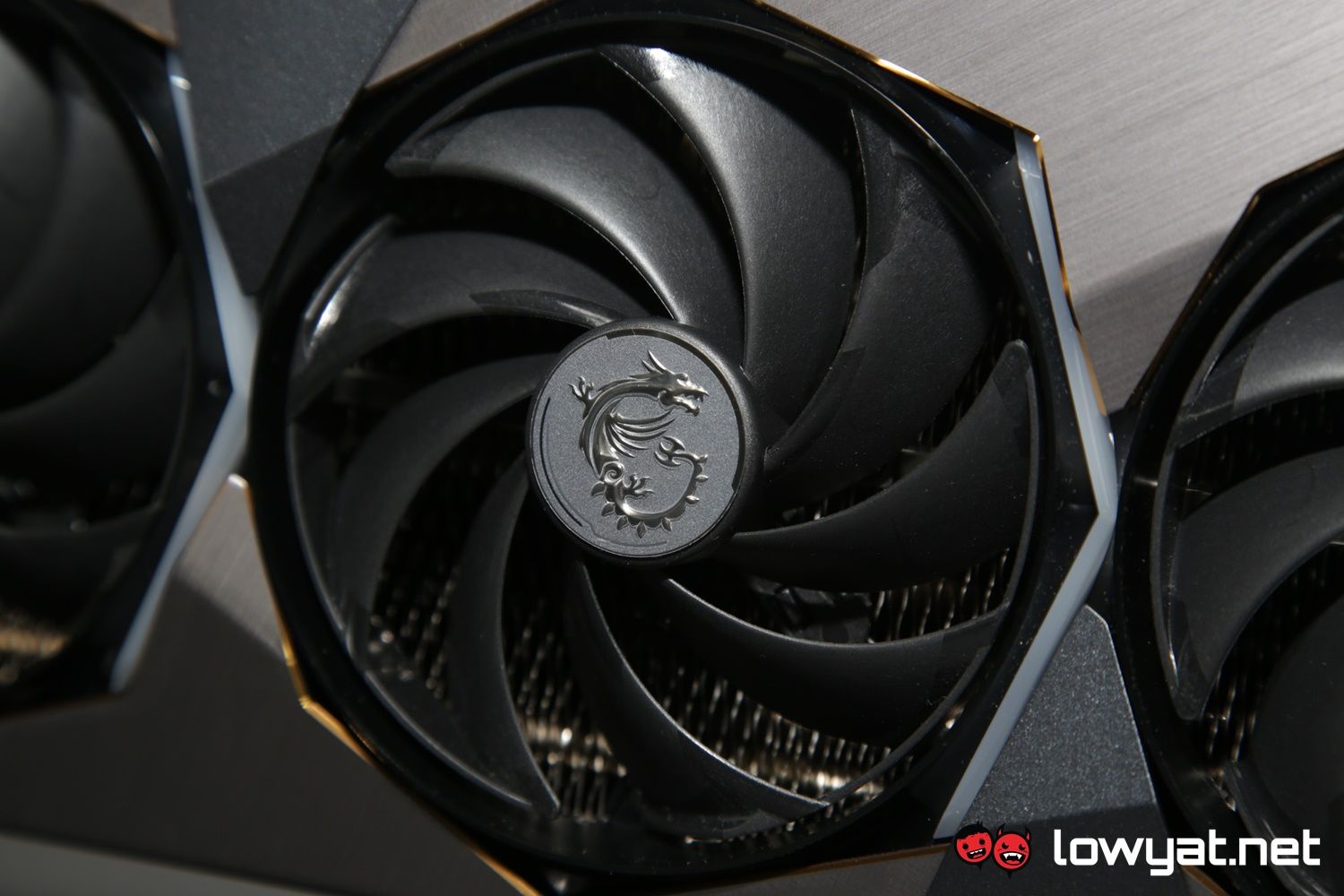MSI’s SUPRIM X series has been the lineup that serves as the brand’s top-tier graphics cards. So, it should come as no surprise that this SUPRIM X GeForce RTX 4080 is tailored for gamers that want a slightly more affordable alternative to the RTX 4090.
Like past SUPRIM X graphics cards before it, this version of the RTX 4080 should, on paper, run slightly faster than NVIDIA’s Founders Edition card. But, given my experience with MSI’s SUPRIM X RTX 3080 Ti last year, I was reminded that perhaps it would be prudent to reserve such pre-conceived notions about custom-cooled cards, at least until after the testing is done.
Specifications
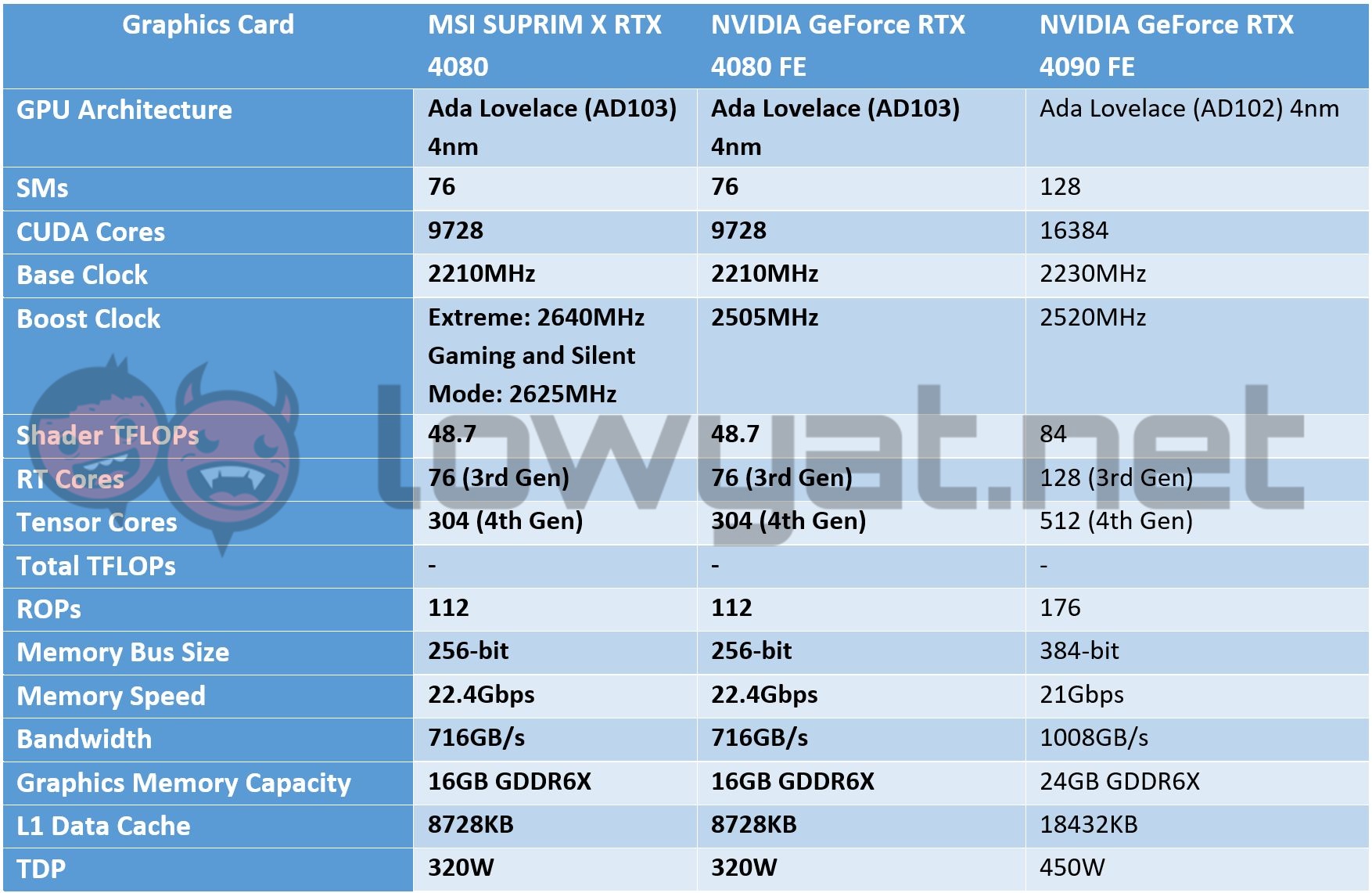 Besides the SUPRIM X RTX 4080’s aesthetics and some slight tweaks to the card’s boost clocks – I’ll get into that in the next section – there really isn’t a whole lot that is different about the card as a whole. Just as NVIDIA and its AIB partners have done for the past RTX generations, the PCB of this card is one provided to MSI by team green, meaning that any extreme tweaking or overclocking by its parent company isn’t present on this card. So, just keep that in mind.
Besides the SUPRIM X RTX 4080’s aesthetics and some slight tweaks to the card’s boost clocks – I’ll get into that in the next section – there really isn’t a whole lot that is different about the card as a whole. Just as NVIDIA and its AIB partners have done for the past RTX generations, the PCB of this card is one provided to MSI by team green, meaning that any extreme tweaking or overclocking by its parent company isn’t present on this card. So, just keep that in mind.
Design
Because the SUPRIM X RTX 4080 is basically following a general template from NVIDIA, the only thing left in MSI, along with the rest of its rivals, is to differentiate the card with its own cooling solution and aesthetics. To starts, this card easily boasts the brand’s Tri Frozr 3S cooling solution and design.
That cooling solution includes a triple-fan configuration, based on MSI’s TORX Fan 5.0 technology that sees its fan blades linked together by a special ring arc, made to help stabilise and maintain high-pressure airflow directly onto the affected GPU areas.
In addition, the fans on the SUPRIM X RTX 4080 are also flanked by, unsurprisingly, a vapour chamber heatsink that, in turn, is aided by what MSI describes as “filled fins”, which is just a fancy way of saying that it managed to cram more fins onto the metal block than before. Moving on, the care uses a core pipe design, where a section of the heatsink’s square-shaped heat pipes are the ones actually coming into contact with the GPU.
Of course, the SUPRIM X RTX 4080 wouldn’t be categorised as a high-end and premium-tier graphics card if it didn’t have a backplate attached to it, so naturally, it went ahead and did just that. As with all backplates, this one isn’t just screwed into place to bolster its overall passive cooling for the back of the card, but also to add rigidity and prevent it from sagging over prolonged use.
And before you ask: yes, the SUPRIM X RTX 4080 is peppered with RGB LEDs. While this staple does enhance the overall visual appeal of it, I actually just left it off, as it really doesn’t provide any boost to the card’s performance.
Testbed
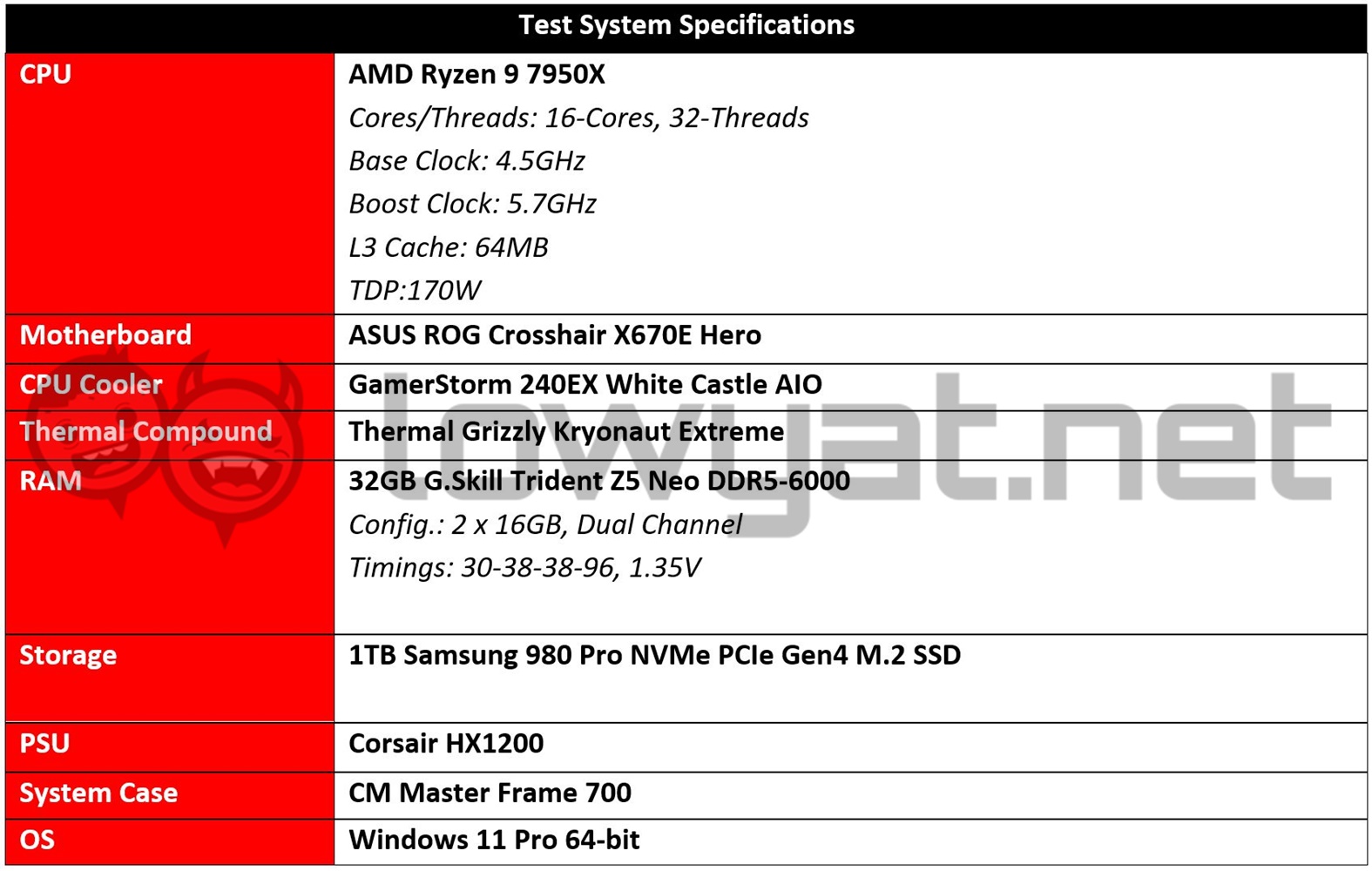 My testbed for testing the SUPRIM X RTX 4080 remains the same as when I tested the Founders Edition version of the card. This includes the same Ryzen 9 7950X CPU and ASUS ROG Crosshair X670E Hero, along with 32GB DDR5-6000 RAM, which are also AMD EXPO-ready.
My testbed for testing the SUPRIM X RTX 4080 remains the same as when I tested the Founders Edition version of the card. This includes the same Ryzen 9 7950X CPU and ASUS ROG Crosshair X670E Hero, along with 32GB DDR5-6000 RAM, which are also AMD EXPO-ready.
One other minor detail that I should point out is that, at the time of writing, the CPU cooler I’m using isn’t the GamerStorm 240EX White Castle AIO anymore but the ROG Ryujin II 360. It’s a small cock-up on my part, and one I’ll amend later.
As usual, I will be running the SUPRIM X RTX 4080 out of the box, without any overclocking.
Benchmarks
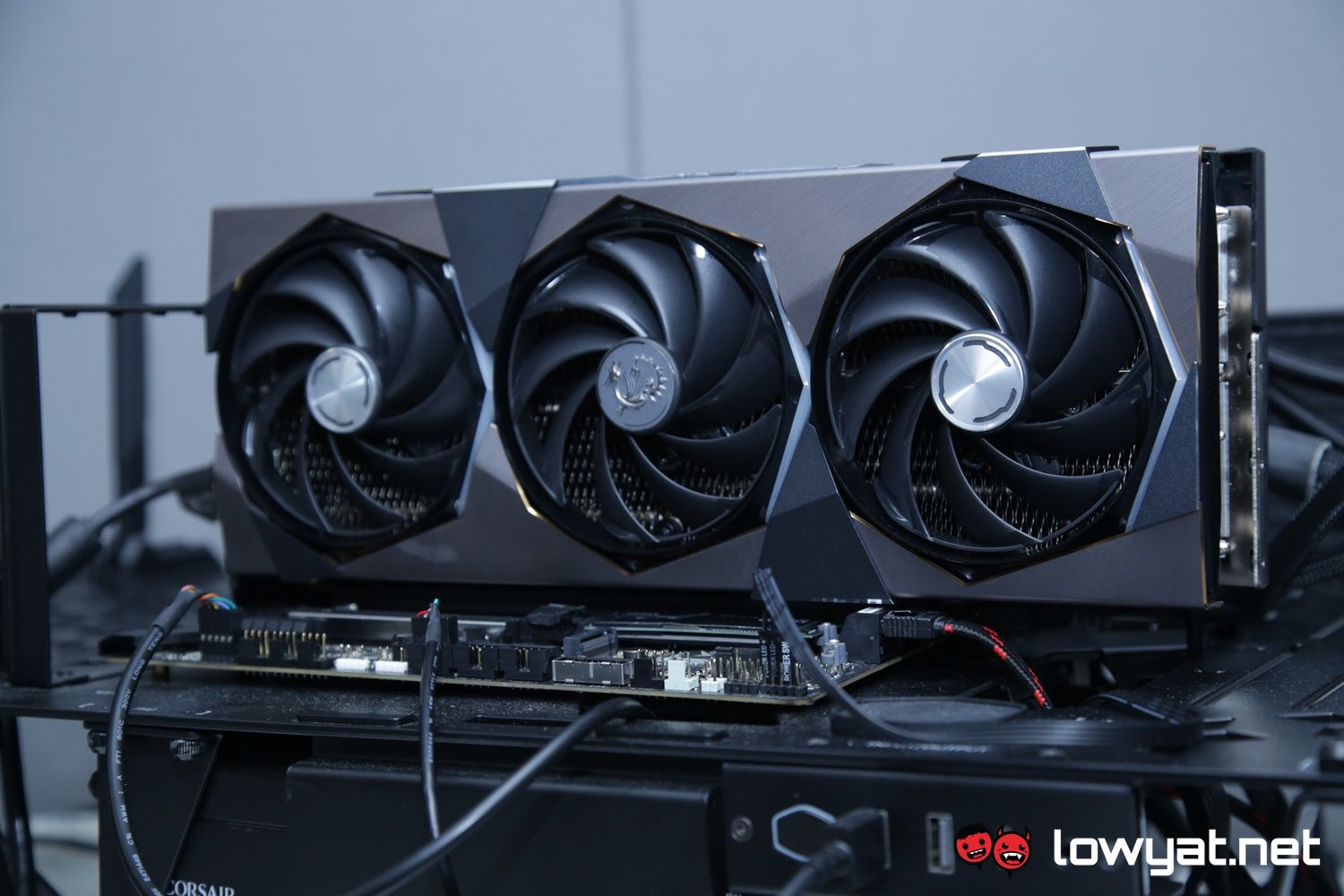 Unsurprisingly, the SUPRIM X RTX 4080 shows that it is more than capable at blasting through the synthetic benchmarks portion of my tests without breaking a sweat. However, having said that, the card isn’t exactly pulling ahead of NVIDIA’s RTX 4080 FE.
Unsurprisingly, the SUPRIM X RTX 4080 shows that it is more than capable at blasting through the synthetic benchmarks portion of my tests without breaking a sweat. However, having said that, the card isn’t exactly pulling ahead of NVIDIA’s RTX 4080 FE.
In fact, the SUPRIM X RTX 4080 is actually matching the RTX 4080 FE in all the 3D tests, but somehow loses out very slightly to the latter in two of three resolution tests of Unigine Superposition. Again, it should be noted that this is happening, despite its boost clock being 100MHz higher on average.
Moving on to gaming with the SUPRIM X RTX 4080, the narrative is pretty much the same, at least at 4K resolution and some portions of 1440p. Across the board, I’m seeing apples-to-apples average framerates, but it does pull ahead very slightly in one or two games.
Interestingly enough, it’s at the lower resolutions of 1440p and Full HD that you can see the SUPRIM X RTX 4080 pull ahead in some titles, but again, this is erratic behaviour at best, as I noticed some stuttering in titles such as Control and, of all the titles, DOOM Eternal.
Temperature and Power Consumption
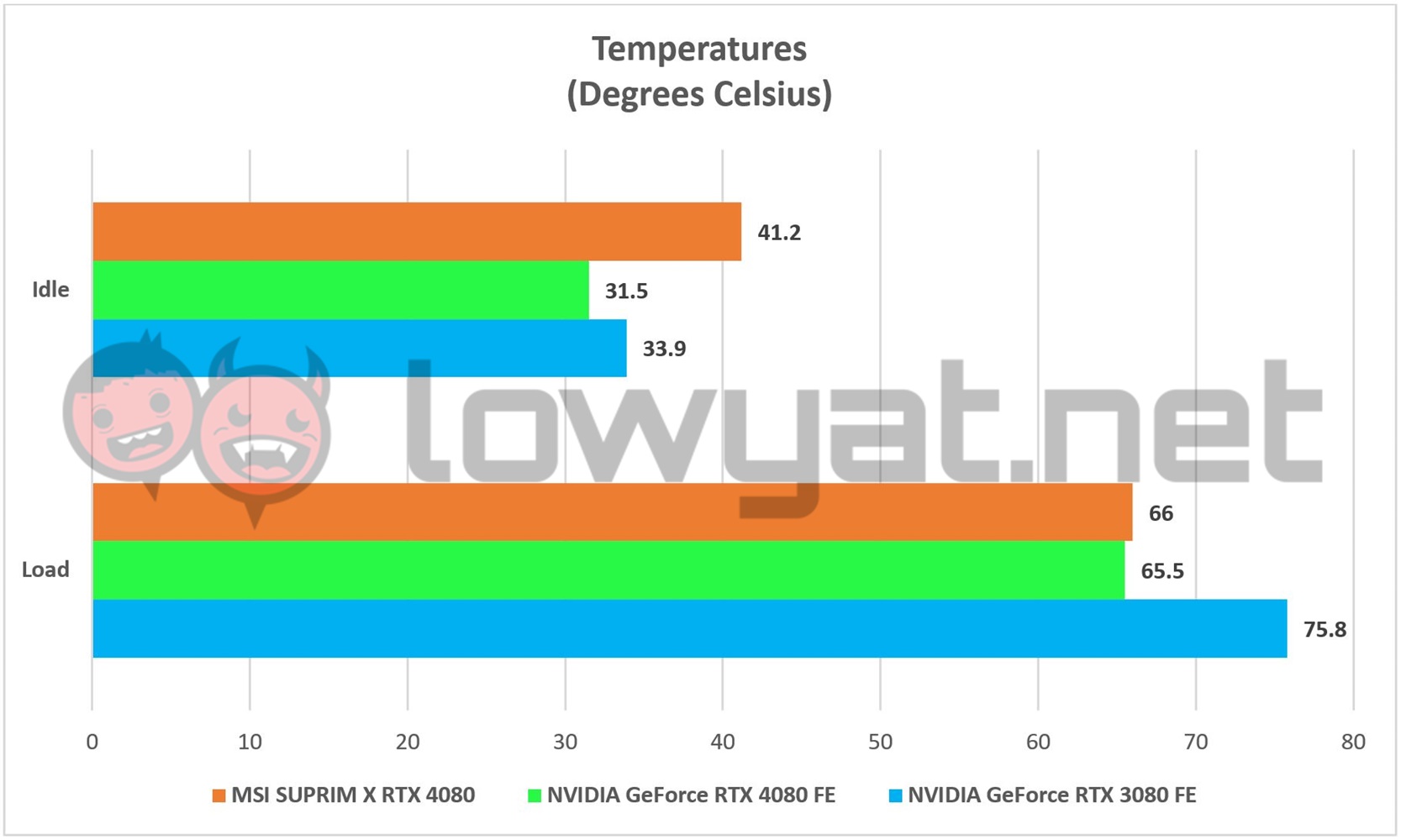 For all the cooling apparatus that MSI’s SUPRIM X RTX 4080 card boasts about, I must say that it is odd to see the card actually hitting the same mark as the RTX 4080 Founders Edition at full load. Not only that, but its idle operating temperatures are wildly higher, and this pattern was consistent throughout my review period.
For all the cooling apparatus that MSI’s SUPRIM X RTX 4080 card boasts about, I must say that it is odd to see the card actually hitting the same mark as the RTX 4080 Founders Edition at full load. Not only that, but its idle operating temperatures are wildly higher, and this pattern was consistent throughout my review period.
While I would say that this is quite possibly due to the SUPRIM X RTX 4080’s zero RPM technology, that argument is thrown out the window because, once again, the RTX 4080 FE and its zero RPM mode saw the card sitting just a little higher than 31°C. And this is in a closed lab environment, with the ambient temperature set at 20°C.
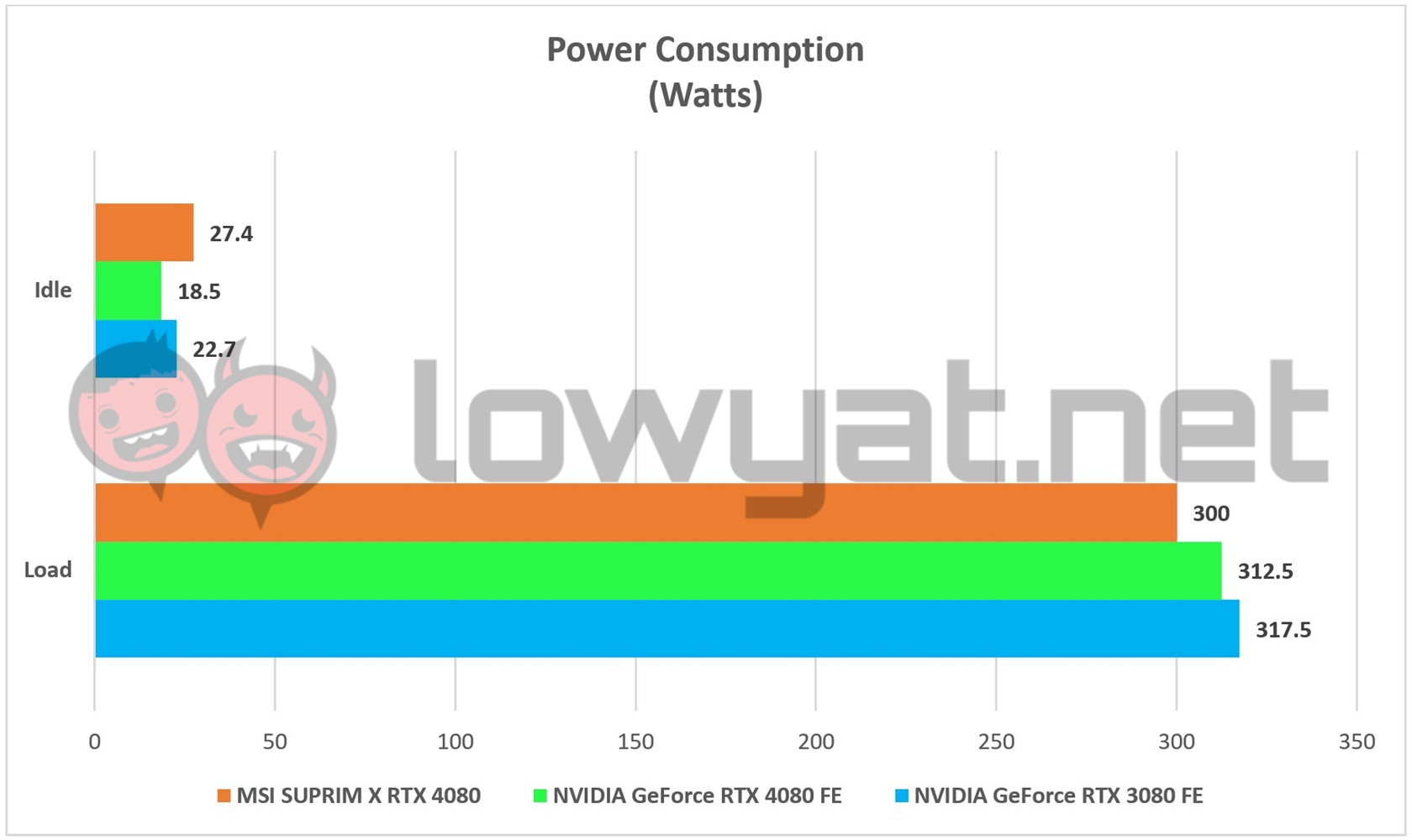 As for drawing power off the wall to run, the SUPRIM X RTX 4080 draws a little less power than its FE counterpart, but I should point out that at one time, it drew close to 390W. Again, it is a one-off experience and beyond that, there is nothing out of the ordinary with this card’s power consumption.
As for drawing power off the wall to run, the SUPRIM X RTX 4080 draws a little less power than its FE counterpart, but I should point out that at one time, it drew close to 390W. Again, it is a one-off experience and beyond that, there is nothing out of the ordinary with this card’s power consumption.
Conclusion
One of the points that I have held off mentioning about the MSI SUPRIM X RTX 4080 is obviously a decisive factor: its price. At RM7390, there is no doubt that this is still a very expensive graphics card and, frankly speaking, out of reach for most average gamers.
Yes, it is still a powerful card, even for those trading up from a previous generation GeForce RTX 3080 or 3080 Ti. And yes, its aesthetics are part of its appeal, but then again, it’s a quintessential part of all the other brands and their respective lineups.
The problem with the SUPRIM X RTX 4080, or any other RTX 4080 card on the market, is that there is currently no visible or distinguishable difference in performance between this card and other SKUs in MSI’s portfolio. On top of that, Because of the price discrepancy between it and the RTX 4090 equivalent, there is a strong case to be made that I would actually top up the extra RM1000 and get that card instead.
In conjunction with those points, and if you still have your heart set on a GeForce RTX 4080 from MSI, there are alternatives to the SUPRIM X, such as the Ventus 3X and Gaming X Trio versions of the cards, both of which are comparably cheaper and, I suspect, would have similar performance metrics.
But, again, if you’ve got the disposable income to burn and you’re intent on getting it for bragging rights, then go right ahead.
Photography by John Law.
Follow us on Instagram, Facebook, Twitter or Telegram for more updates and breaking news.


